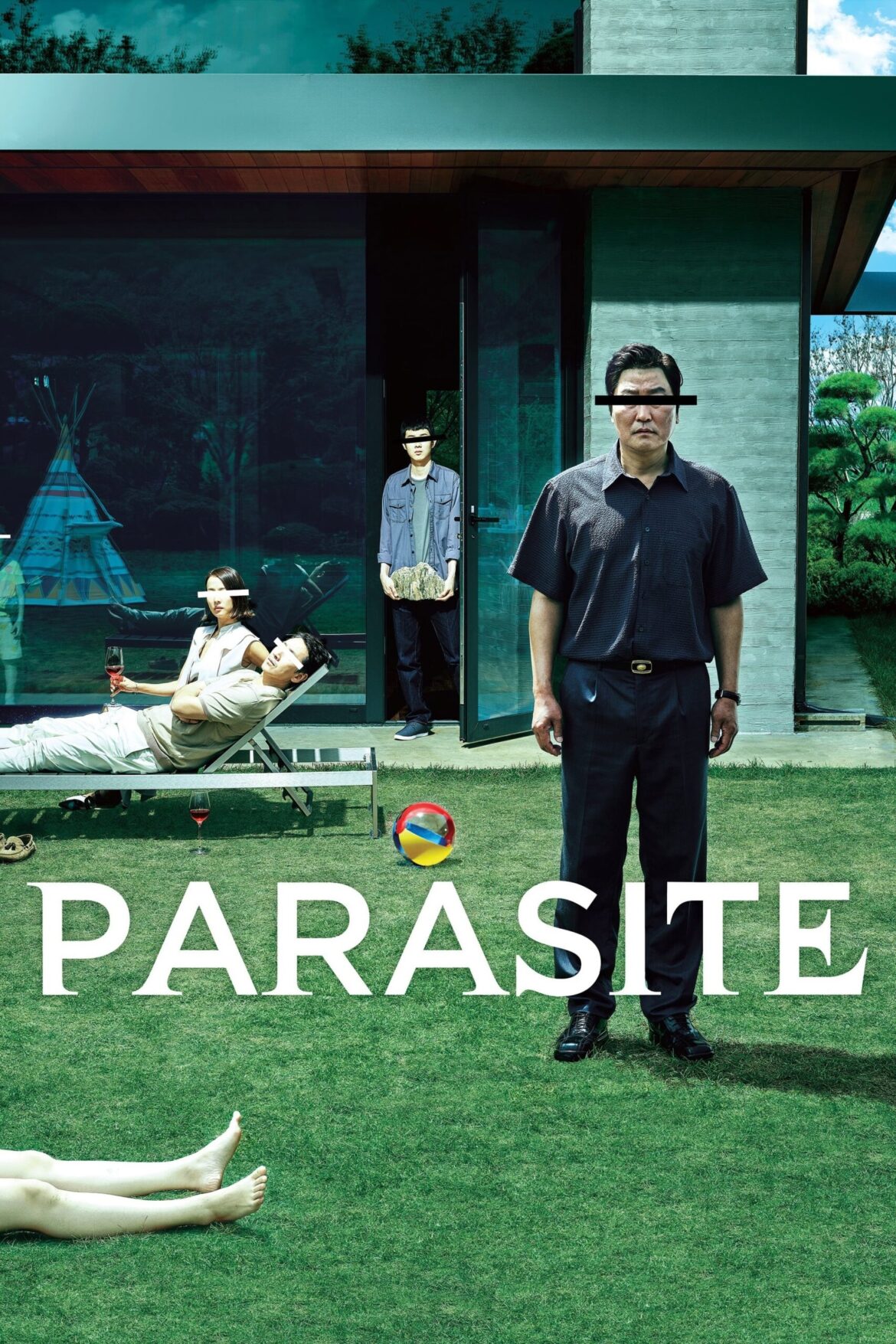Parasite (2019) – A Masterful Social Satire
Type: Movie
Country: South Korea
Genre: Thriller, Drama, Dark Comedy
Release Date: May 30, 2019
Duration: 132 minutes
Director: Bong Joon-ho
Production Companies: Barunson E&A, CJ Entertainment
Cast: Song Kang-ho, Lee Sun-kyun, Cho Yeo-jeong, Choi Woo-shik, Park So-dam, Lee Jung-eun, Jang Hye-jin
Quick Review:
“Parasite” (2019), directed by Bong Joon-ho, is a groundbreaking South Korean film that deftly blends thriller, drama, and dark comedy to deliver a powerful social critique. With its sharp script, exceptional performances, and masterful direction, “Parasite” transcends cultural boundaries, resonating with audiences worldwide. This cinematic masterpiece offers a gripping, thought-provoking exploration of class conflict and social inequality.
Plot Summary:
“Parasite” follows the Kim family, who live in a cramped, basement apartment in a poor neighborhood. The family consists of father Ki-taek (Song Kang-ho), mother Chung-sook (Jang Hye-jin), son Ki-woo (Choi Woo-shik), and daughter Ki-jung (Park So-dam). Struggling to make ends meet, the Kims see an opportunity to infiltrate the wealthy Park family’s household.
Ki-woo secures a job as an English tutor for the Parks’ daughter, Da-hye (Jung Ji-so), by falsifying his qualifications. Soon, Ki-jung joins the scheme as an art therapist for the Parks’ son, Da-song (Jung Hyeon-jun). The siblings ingeniously plot to get their parents employed by the Parks, displacing the existing staff through manipulative tactics.
As the Kims integrate themselves into the Parks’ lives, the film reveals the stark contrast between the families’ lifestyles and aspirations. The situation takes a dark turn when the Kims discover a hidden basement in the Parks’ house, harboring a secret that threatens to unravel their carefully constructed façade. The tension escalates into a dramatic and tragic climax, exposing the destructive consequences of the class divide.
Characters and Performances:
- Song Kang-ho as Ki-taek: Song delivers a nuanced performance as the patriarch of the Kim family. His portrayal of Ki-taek’s desperation, cunning, and vulnerability is both compelling and empathetic.
- Lee Sun-kyun as Park Dong-ik: Lee’s performance as the wealthy yet oblivious head of the Park family effectively highlights the class disparities central to the film’s narrative.
- Cho Yeo-jeong as Yeon-kyo: Cho excels as the naive and impressionable wife of Park Dong-ik, embodying the privilege and ignorance of her social class.
- Choi Woo-shik as Ki-woo: Choi brings depth to his role as the enterprising yet conflicted son, whose ambitions drive the family’s infiltration.
- Park So-dam as Ki-jung: Park’s portrayal of the sharp-witted daughter is both humorous and poignant, adding layers to the film’s commentary on social mobility.
- Lee Jung-eun as Moon-gwang: Lee’s performance as the Parks’ loyal housekeeper, who harbors a dark secret, adds to the film’s tension and complexity.
- Jang Hye-jin as Chung-sook: Jang effectively captures the resilience and resourcefulness of the Kim family matriarch.
Direction and Cinematography:
Bong Joon-ho’s direction is nothing short of masterful. He skillfully balances multiple genres, seamlessly transitioning between dark comedy, suspense, and drama. Bong’s ability to infuse social commentary into an engaging and unpredictable narrative is a testament to his prowess as a filmmaker.
The cinematography by Hong Kyung-pyo is striking, using visual contrasts to underscore the film’s themes. The stark differences between the Kims’ cramped, dimly lit basement and the Parks’ spacious, modern home are visually emphasized. The meticulous framing and use of vertical space effectively illustrate the social hierarchy central to the story.
Music:
Jung Jae-il’s score complements the film’s shifting tones, enhancing both its comedic and suspenseful moments. The music underscores the narrative’s tension and drama, contributing to the film’s overall impact. Additionally, the use of classical music pieces, such as the recurring motif of Handel’s “Rodelinda,” adds a layer of sophistication and irony.
Why It Endures:
“Parasite” endures as a modern classic due to its universal themes and masterful execution. The film’s exploration of class conflict, social inequality, and the human condition resonates across cultures and societies. Its sharp social commentary, combined with its engaging and unpredictable narrative, ensures that “Parasite” remains relevant and thought-provoking.
The film’s critical acclaim, including winning the Palme d’Or at Cannes and four Academy Awards, including Best Picture, cements its place in cinematic history. “Parasite” challenges viewers to reflect on societal structures and their implications, making it a timeless and significant work.
In Conclusion:
“Parasite” (2019) is a cinematic tour de force that captivates with its intricate storytelling, exceptional performances, and profound social commentary. Directed by Bong Joon-ho, the film transcends cultural boundaries, offering a gripping and thought-provoking exploration of class and inequality. Its lasting impact and critical acclaim solidify “Parasite” as a must-see film and a defining piece of modern cinema.


